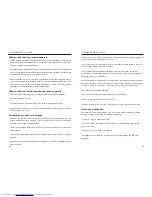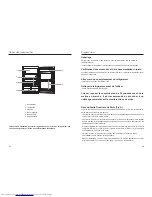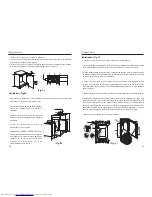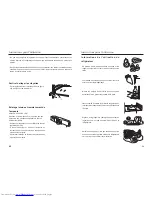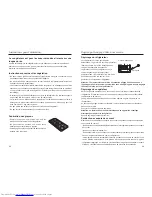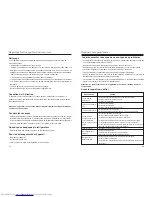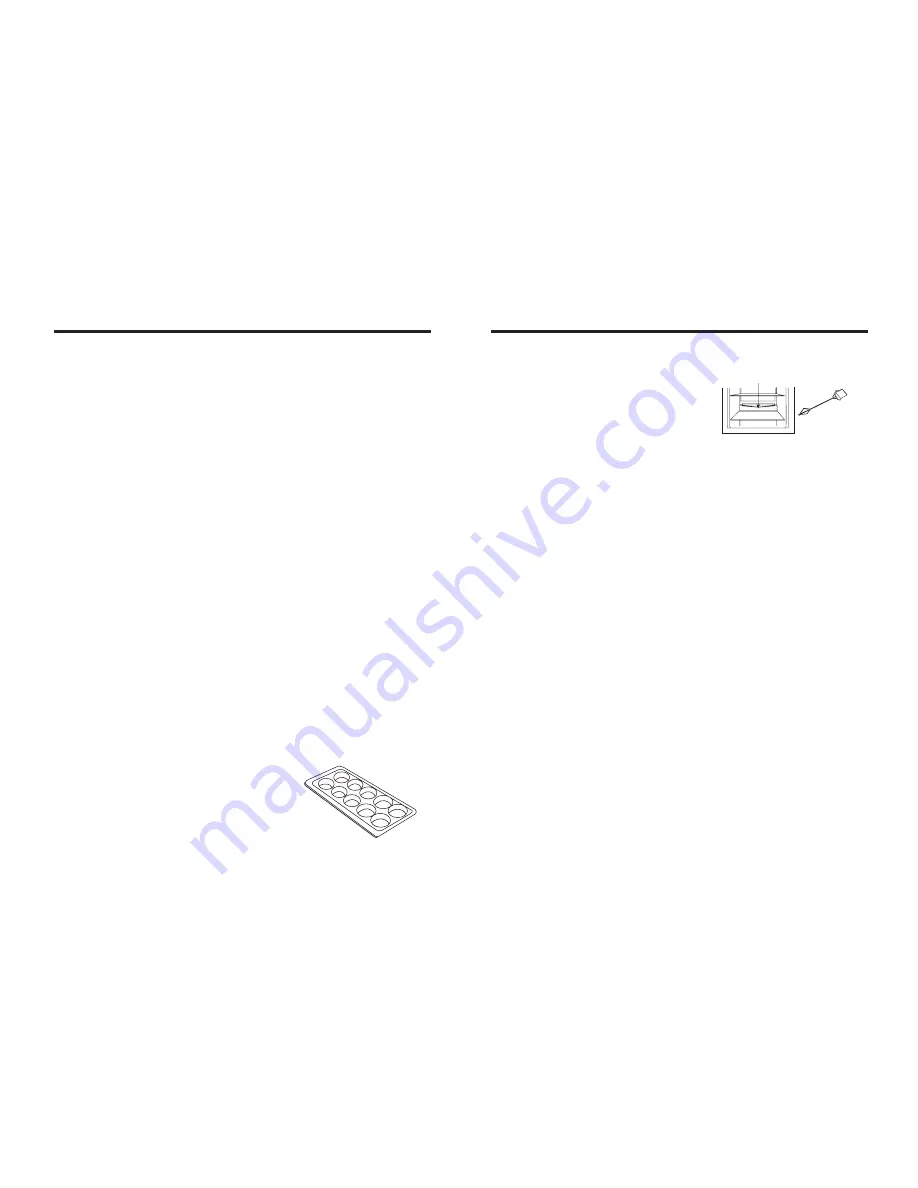
Instructions
Long-term storage of food
As the freezer storage temperature is very low, fresh food can be stored in the freezer
compartment for a long time. Food requiring long-term storage can be stored in the
frozen food compartment. Attention should be paid to the storage information printed on
the food packing.
Frozen food storage
* The recommended weight of fresh food is less than 2 kg .
* Hot food should not be stored in the refrigerator until it has cooled down to room
temperature.
* The outside of any food packing should dried before storage in the freezer, and any
packing materials should be odor-free, airtight, non-poisonous and nontoxic.
* Only remove the required amount of food from the refrigerator. Defrosted food cannot be
re-stored in the freezer unless it is first cooked.
* Food cut into small portions will freeze faster and be easier to defrost and cook. The
recommended weight for each portion is less than 1.5kg.
* Do not put in bottled beer or drinks.
* Do not touch frozen food wet-handed.
Making water-Ice
* Pour water into the water ice mould up to three-quarters
of the mould volume, and then place the mould in the
freezing compartment.
* Do not a use knife or other metal tools to take the ice
out of the mould.
* The ice can be easily removed by hand after the mould
has been placed in warm water for a short time.
11
12
Defrosting-Cleaning-De-commissioning
Defrosting the cold storage compart-
ment
The cold storage compartment is designed for
automatic defrosting. Frost formed on the back wall
will melt and flow via the drainpipe to the evaporat-
ing container over the compressor on the back of
the refrigerator, where the heat generated by the
compressor will evaporate the water.
Caution: Always keep the drain over the vegetable and fruit tray clear to ensure
the normal flow of defrosted water. Use the rod provided to clear any blockages.
Defrosting the freezer
After a period of operation, a layer of frost will form on the surface of the freezer. Addi-
tional electricity will be consumed if this layer becomes too thick. The defrosting process
must be carried out when a thick layer of frost has been formed.
To defrost the freezer, first disconnect the power by unplugging the refrigerator, and then
remove any food from the refrigerator and place it in a cool place. Use a plastic defrost-
ing tool.
After ice and frost are melted, wipe up the inside of the freezer compartment.
Caution: Never use a metal tool or electrical heater for defrosting.
After the defrosting is completed, plug in the refrigerator and it starts operation again.
Power failure
Even in summer, food can be stored in the refrigerator for a few hours after a power failure.
* Don't put additional food into the refrigerator during a power failure.
* Avoid opening the door during power failures
* If prior notice of a power failure is given, make some ice and put it in a container in the top
of the cold storage compartment.
Caution: temperature in the refrigerator will rise during a power failure or in the
event of technical problems, and the storage period will be reduced.
Water outlet,
cleaning rod

















